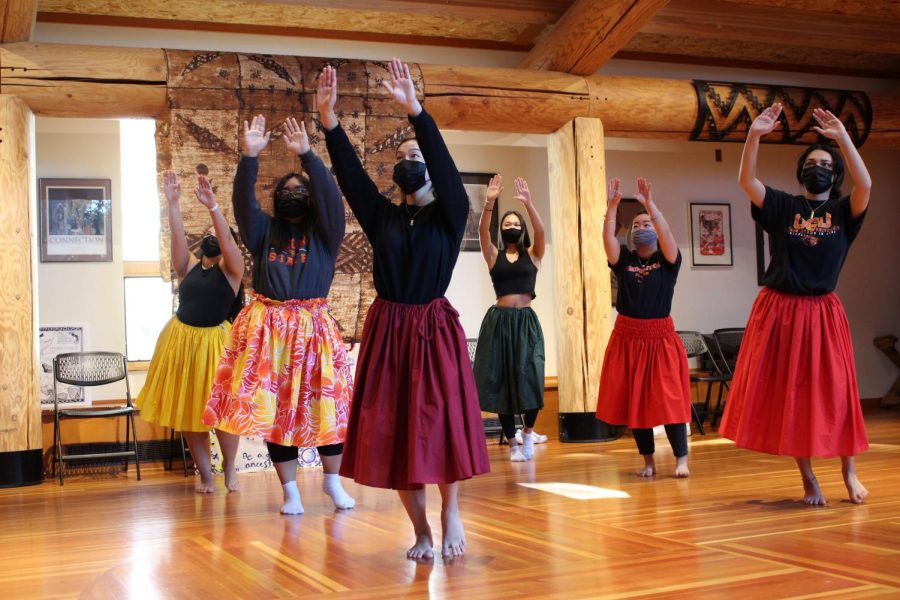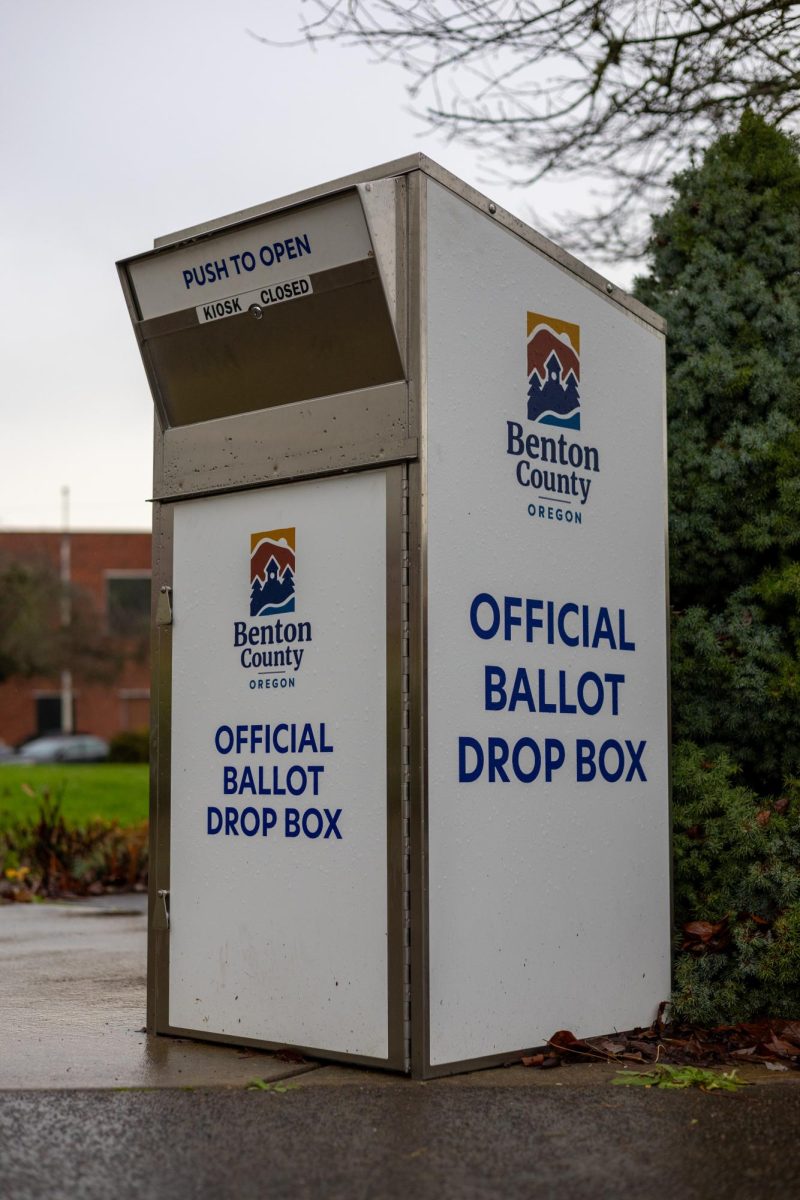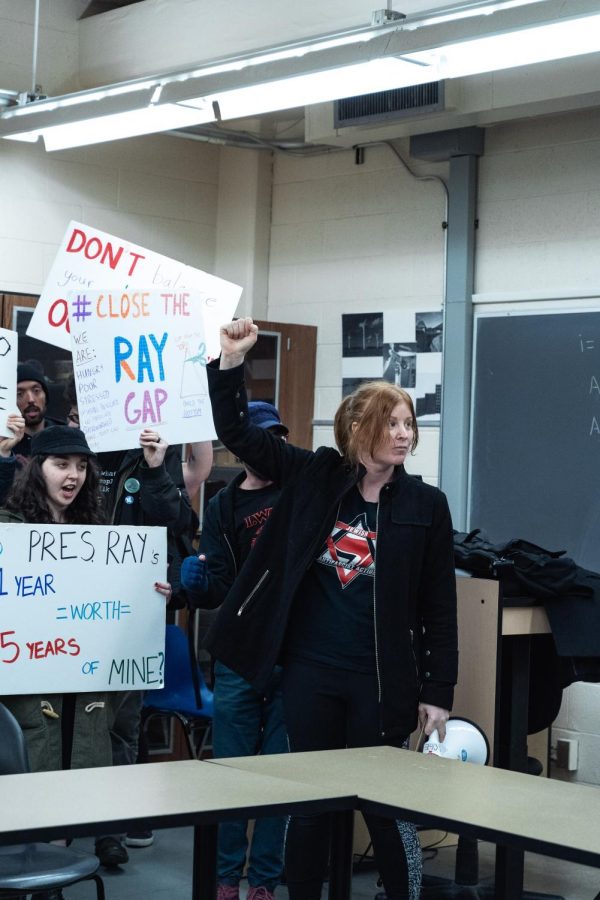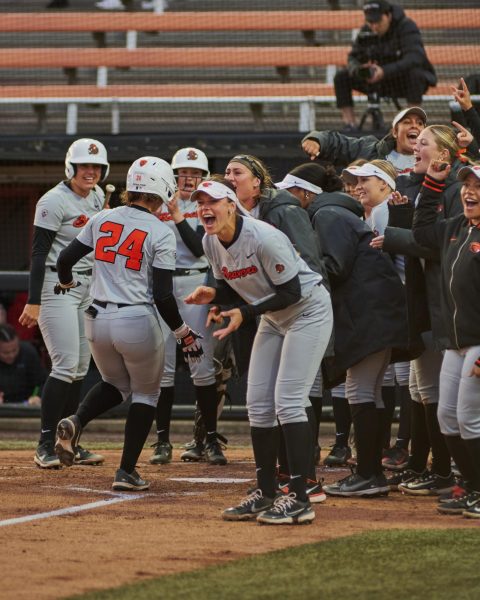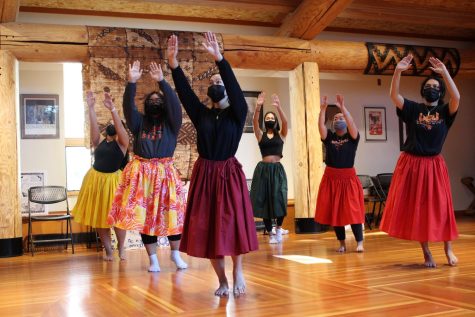CGE’s ongoing fight for labor rights bolstered by new contract ratification
An image from September 2020 pictures Andrea Haverkamp (center), president of the Coalition of Graduate Employees, raising a fist in the air, signaling a chant to fellow protesters in February of 2020.
August 11, 2022
Equity, accountability, respect and job security. Those were the four tenets that the Coalition of Graduate Employees took into mind when formulating a new contract to support over 1,800 unionized Oregon State University graduate student workers.
After six months of bargaining and over a year of preparation, CGE’s negotiated contract was ratified by OSU administrators on July 19. Higher salaries, quicker confirmation of employment status, an expansion of the Hardship Fund and improved health and safety measures were all secured under the new contract.
Minimum salaries were raised by 9%, with a 4.75% cost of living increase in fall 2022 and an additional 4% increase in the following year.
Graduate employees are now notified of their employment status through appointment letters 30 days before the start of fall term. Summer employees are notified 45 days before the term begins as a way to confirm employment earlier for a more financially-insecure time of year. Late appointment letters will result in a $50 fee paid to the affected graduate employee.
The Hardship Fund, created in 2019, is intended to aid students who may need to cover medical, rent, or grocery expenses over the summer months when less jobs are available. With the approval of the contract, the Hardship Fund has over doubled in size from $50,000 to $125,000. This fund is accessible to all grad employees regardless of membership status within CGE.
Hazardous work environments and bullying and/or harassment were another set of issues CGE attempted to tackle with this contract, which now requires safety utilities within workplaces and anti-harassment training for all supervisors and employees.
Gaining these accommodations was no easy task for CGE, as its 12-person bargaining team displays. Bargaining team members and PHD students Cassidy Wagner, Tilottama Chatterjee and John Stepanek put in an estimated 250 hours each this year in order to make it happen, despite initial failure and pushback from administration.
“We were trying to get real change, around that several hundred dollar a month change, and one of the bargaining team members, after the session, just went to the bathroom to process that they just tried to give us a $13 raise for the month,” Wagner said. “I think that was really hard for a lot of us and it’s hard to sit in front of people who have the power to make your job — make your life — good, and then they choose not to.”
Frustration with the imbalance of power between grad employees and administrators was a common theme among the CGE bargaining team, especially towards administrators’ unwillingness to raise wages.
“The total costs from our initial proposals, like if we had gotten everything we wanted from our very first proposal that we passed them, it would have cost just over $6 million per year, which sounds like a lot of money, and it is, but that’s dispersed over 1,800 graduate employees,” Stepanek said. “For context, the top 100 earners at OSU… they make over 30 million dollars a year…You know those top 100 people are making 30 million a year, and they can’t disperse 6 million among 1,800 people?”
Even just to negotiate a tamer, less expensive version of the contract, CGE had to go to great lengths to wear down university executives. Chatterjee credits the diligent work of her fellow union members as the main catalyst for change.
“We had a 17-hour long session that started in the afternoon and went on throughout the night, and we had two more marathon sessions after that. There were people in the room bringing us blankets, making us coffee and food and providing genuine emotional support and physical support,” Chatterjee said. “I don’t think our 12 member team would have kept going without all of these people in the room.”
While gaining salary increases and better working conditions is a big victory for CGE, the organization still has areas it would like OSU to improve upon. One such issue is that grad employees are rarely paid for the actual amount of time they work.
According to Wagner, teacher’s assistants are paid for eight hours of work a week, with many grad students taking on two TA positions at once to support themselves. However, the many tasks associated with being a TA, such as grading, leading labs and responding to emails, often take longer than eight hours. Workers do not receive any kind of compensation for the overtime hours they work, something that CGE would like to change in the near future.
CGE is open for all OSU graduate employees to join. Members must pay 2% of their monthly salary before taxes in dues. In 2024, CGE will re-enter the bargaining process for a full contract negotiation.



